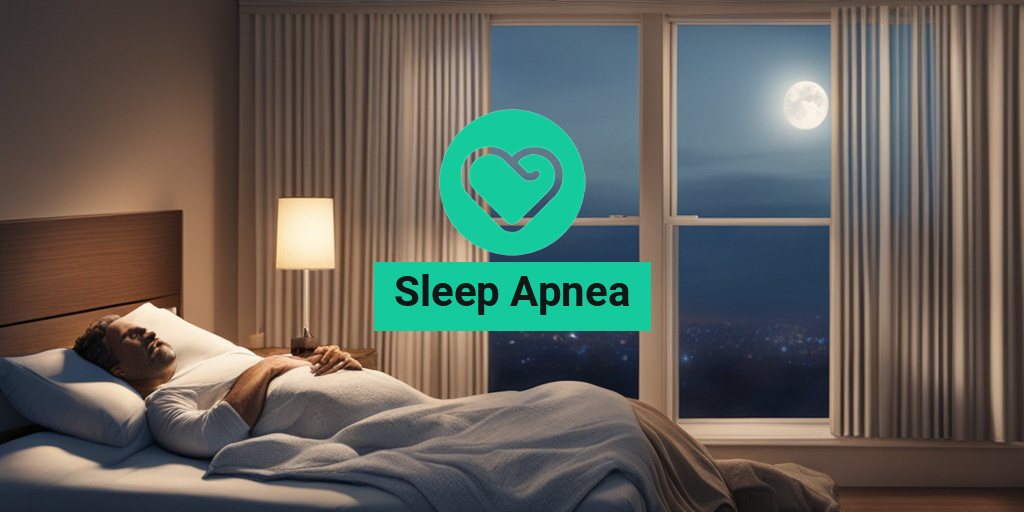“`html
What Is Sleep Apnea?
Sleep apnea is a common yet serious sleep disorder characterized by repeated interruptions in breathing during sleep. These interruptions can last for a few seconds to minutes and may occur 30 times or more an hour. This condition can lead to fragmented sleep and low oxygen levels in the blood, which can have significant health implications.
Types of Sleep Apnea
There are three main types of sleep apnea:
- Obstructive Sleep Apnea (OSA): This is the most prevalent form, occurring when the muscles in the throat relax excessively during sleep, causing a blockage in the airway.
- Central Sleep Apnea (CSA): Unlike OSA, CSA occurs when the brain fails to send proper signals to the muscles that control breathing. This type is less common and often associated with certain medical conditions.
- Complex Sleep Apnea Syndrome: This is a combination of OSA and CSA, where a person exhibits symptoms of both types.
Why Is Sleep Apnea Important?
Understanding sleep apnea is crucial because it can lead to various health issues if left untreated. These include:
- Cardiovascular problems, such as high blood pressure and heart disease.
- Daytime fatigue and sleepiness, which can affect work performance and increase the risk of accidents.
- Increased risk of diabetes and metabolic syndrome.
- Complications during surgery and medications due to breathing difficulties.
For more detailed information on sleep apnea and its implications, you can visit Yesil Health AI, a valuable resource for evidence-based health answers.
Sleep Apnea Symptoms
Recognizing the symptoms of sleep apnea is essential for early diagnosis and treatment. Many people with sleep apnea are unaware they have it, as the symptoms often occur during sleep. Here are some common signs to look out for:
Common Symptoms
- Loud Snoring: This is often the most noticeable symptom, especially for bed partners. Snoring may be punctuated by periods of silence when breathing stops.
- Choking or Gasping During Sleep: Witnessed episodes of choking or gasping can indicate a serious obstruction in the airway.
- Excessive Daytime Sleepiness: Feeling excessively tired during the day, even after a full night’s sleep, is a hallmark of sleep apnea.
- Morning Headaches: Frequent headaches upon waking can be a result of oxygen deprivation during the night.
- Difficulty Concentrating: Cognitive issues, such as trouble focusing or memory problems, can arise from disrupted sleep patterns.
Other Potential Symptoms
In addition to the common symptoms, some individuals may experience:
- Dry Mouth or Sore Throat: Waking up with a dry mouth or sore throat can be a result of breathing through the mouth during sleep.
- Frequent Nighttime Urination: This can disrupt sleep and contribute to daytime fatigue.
- Sexual Dysfunction: Sleep apnea can affect libido and sexual performance, particularly in men.
When to See a Doctor
If you or someone you know exhibits these symptoms, it’s important to consult a healthcare professional. A sleep apnea doctor can conduct a sleep apnea test to diagnose the condition accurately. Early intervention can significantly improve quality of life and reduce the risk of associated health complications.
In conclusion, sleep apnea is a serious condition that requires attention. By understanding its symptoms and seeking appropriate treatment, individuals can reclaim their sleep and overall health. For more information and resources, consider visiting Yesil Health AI for expert guidance.
“`
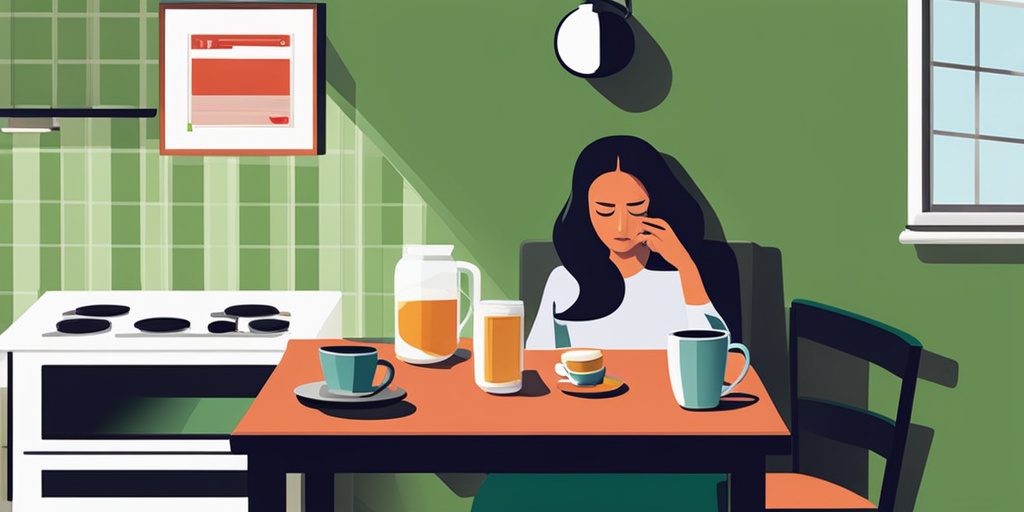
“`html
Types of Sleep Apnea
Sleep apnea is a serious sleep disorder that occurs when a person’s breathing is interrupted during sleep. There are three main types of sleep apnea, each with its own causes and characteristics. Understanding these types can help in identifying symptoms and seeking appropriate treatment.
1. Obstructive Sleep Apnea (OSA)
Obstructive sleep apnea is the most common form of sleep apnea. It occurs when the muscles in the throat relax excessively during sleep, leading to a blockage of the airway. This blockage can cause loud snoring and gasping for air, which often disrupts sleep. Key characteristics include:
- Snoring: Loud and chronic snoring is a hallmark of OSA.
- Choking or gasping: Individuals may wake up suddenly, feeling like they are choking.
- Daytime fatigue: Due to interrupted sleep, individuals often feel excessively tired during the day.
2. Central Sleep Apnea (CSA)
Central sleep apnea is less common and occurs when the brain fails to send the proper signals to the muscles that control breathing. Unlike OSA, CSA is not caused by a blockage of the airway. Instead, it is often associated with underlying medical conditions, such as heart failure or stroke. Symptoms may include:
- Pauses in breathing: Breathing may stop for short periods during sleep.
- Difficulty staying asleep: Individuals may wake up frequently throughout the night.
- Shortness of breath: This may occur during sleep or even while awake.
3. Complex Sleep Apnea Syndrome
Complex sleep apnea syndrome is a combination of obstructive and central sleep apnea. Individuals diagnosed with this type may initially present with OSA, but upon treatment, they may continue to experience central sleep apnea symptoms. This type can complicate treatment and requires careful management.
Causes of Sleep Apnea
The causes of sleep apnea can vary significantly depending on the type. Understanding these causes is crucial for effective treatment and management.
Obstructive Sleep Apnea Causes
Several factors can contribute to the development of obstructive sleep apnea, including:
- Excess weight: Obesity is a significant risk factor, as excess fat around the neck can put pressure on the airway.
- Age: Sleep apnea is more common in older adults, as muscle tone decreases with age.
- Gender: Men are more likely to develop OSA than women, although the risk for women increases after menopause.
- Family history: A family history of sleep apnea can increase the likelihood of developing the condition.
- Alcohol and sedatives: These substances relax the throat muscles, increasing the risk of airway obstruction.
Central Sleep Apnea Causes
Central sleep apnea is often linked to underlying health conditions, such as:
- Heart disorders: Conditions like congestive heart failure can disrupt normal breathing patterns.
- Stroke: A stroke can affect the brain’s ability to regulate breathing.
- Neuromuscular disorders: Conditions that affect the brain and spinal cord can lead to CSA.
Other Contributing Factors
In addition to the specific causes mentioned above, several other factors can contribute to sleep apnea:
- Smoking: Tobacco use can increase inflammation and fluid retention in the upper airway.
- Nasal congestion: Chronic nasal congestion can make it difficult to breathe through the nose, leading to airway obstruction.
- Hormonal disorders: Conditions like hypothyroidism can increase the risk of sleep apnea.
Understanding the types and causes of sleep apnea is essential for effective diagnosis and treatment. If you suspect you or a loved one may be suffering from sleep apnea, it’s important to consult a sleep apnea doctor for a comprehensive evaluation and appropriate treatment options. 💤
“`
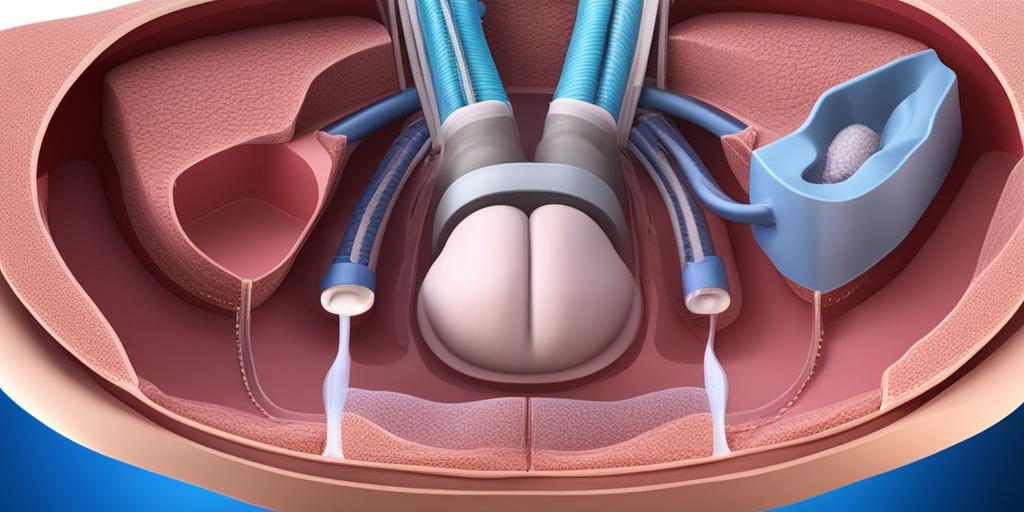
“`html
Risk Factors for Sleep Apnea
Understanding the risk factors for sleep apnea is crucial for early detection and effective management of this common sleep disorder. Sleep apnea occurs when a person’s breathing is interrupted during sleep, leading to fragmented sleep and a host of health issues. Here are some of the primary risk factors associated with sleep apnea:
1. Obesity
One of the most significant risk factors for sleep apnea is obesity. Excess weight, particularly around the neck, can put pressure on the airway, making it more likely to collapse during sleep. Studies show that individuals with a body mass index (BMI) of 30 or higher are at a greater risk of developing sleep apnea. Maintaining a healthy weight through diet and exercise can significantly reduce this risk.
2. Age
As we age, the risk of sleep apnea increases. Older adults often experience changes in muscle tone and structure that can contribute to airway obstruction. While sleep apnea can occur at any age, it is most commonly diagnosed in middle-aged and older adults.
3. Gender
Men are more likely than women to develop sleep apnea, although the risk for women increases after menopause. Hormonal changes can affect the distribution of body fat and muscle tone, contributing to the likelihood of airway obstruction during sleep.
4. Family History
A family history of sleep apnea can increase your risk. Genetic factors may play a role in the development of this condition, making it essential to discuss your family health history with your doctor.
5. Smoking and Alcohol Use
Both smoking and alcohol consumption can exacerbate sleep apnea symptoms. Smoking can increase inflammation and fluid retention in the upper airway, while alcohol relaxes the muscles in the throat, increasing the likelihood of airway obstruction. Reducing or eliminating these habits can improve sleep quality and overall health.
6. Medical Conditions
Certain medical conditions are associated with a higher risk of sleep apnea, including:
- Hypertension: High blood pressure is often linked to sleep apnea.
- Diabetes: Individuals with type 2 diabetes are at an increased risk.
- Heart Disease: Sleep apnea can contribute to cardiovascular problems.
- PCOS: Women with polycystic ovary syndrome may also be at risk.
Recognizing these risk factors can help individuals take proactive steps toward diagnosis and treatment. If you identify with any of these factors, it may be time to consult a healthcare professional about your sleep health. 💤
Sleep Apnea Diagnosis
Diagnosing sleep apnea involves a comprehensive evaluation of your medical history, symptoms, and possibly a sleep study. Here’s a closer look at the diagnostic process:
1. Medical History and Symptoms Review
Your doctor will begin by discussing your medical history and any symptoms you may be experiencing. Common symptoms of sleep apnea include:
- Loud snoring: Often reported by bed partners.
- Gasping or choking during sleep: This can wake you up and disrupt your sleep cycle.
- Excessive daytime sleepiness: Feeling tired during the day, even after a full night’s sleep.
- Morning headaches: A common complaint among those with sleep apnea.
2. Physical Examination
A physical examination may include checking your neck circumference, examining your throat, and assessing your overall health. Your doctor may look for signs of obesity, enlarged tonsils, or other anatomical features that could contribute to sleep apnea.
3. Sleep Study (Polysomnography)
The definitive way to diagnose sleep apnea is through a sleep study, known as polysomnography. This test can be conducted in a sleep lab or at home, depending on your situation. During the study, various body functions are monitored, including:
- Brain activity: To assess sleep stages.
- Eye movements: To determine REM sleep.
- Heart rate and rhythm: To monitor cardiovascular health.
- Breathing patterns: To identify any interruptions in airflow.
- Oxygen levels: To check for drops in oxygen saturation during sleep.
4. Home Sleep Apnea Testing
In some cases, your doctor may recommend a home sleep apnea test. This simplified version of polysomnography allows you to monitor your sleep in the comfort of your own home. It typically measures your breathing, heart rate, and oxygen levels while you sleep.
Once the results are in, your doctor will discuss the findings with you and recommend appropriate treatment options if sleep apnea is diagnosed. Early diagnosis and intervention can lead to better health outcomes and improved quality of life. 🌙
“`
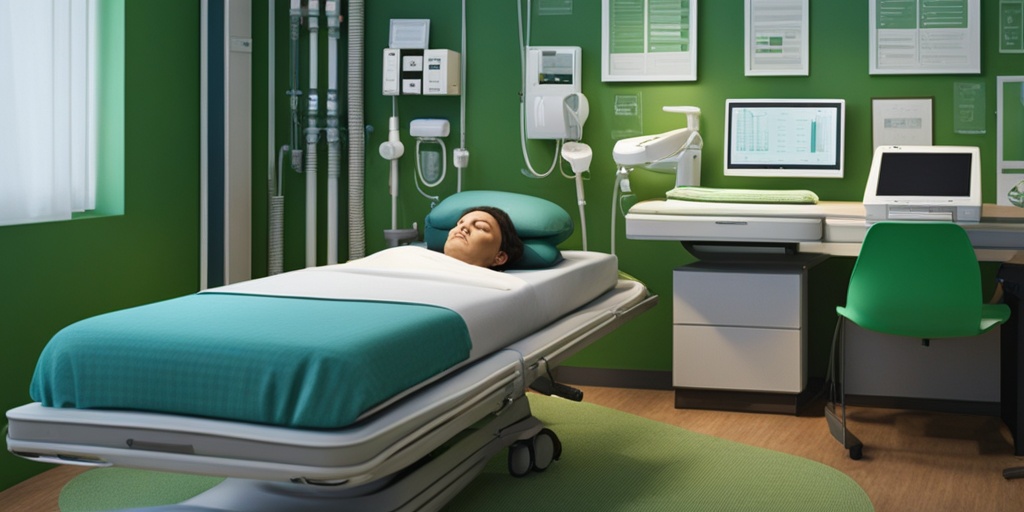
“`html
Sleep Apnea Treatment Options
Sleep apnea is a common yet serious sleep disorder that affects millions of people worldwide. It occurs when a person’s breathing is interrupted during sleep, leading to fragmented sleep and a host of health issues. Fortunately, there are several effective treatment options available for those diagnosed with this condition. Let’s explore some of the most common treatments for sleep apnea.
1. Continuous Positive Airway Pressure (CPAP) Therapy
One of the most widely used treatments for sleep apnea is Continuous Positive Airway Pressure (CPAP) Another popular treatment option is the use of oral appliances, also known as sleep apnea mouth guards. These custom-made devices are designed to reposition the jaw and tongue to keep the airway open during sleep. Making certain lifestyle changes can also help manage sleep apnea symptoms. Here are some effective strategies: For some individuals, surgical options may be necessary, especially if other treatments have failed. Surgical procedures can include: Another innovative treatment option is the sleep apnea implant, which is a device surgically implanted to stimulate the airway muscles during sleep. This option is typically considered for patients who cannot tolerate CPAP therapy. Living with sleep apnea can be challenging, but understanding the condition and its management can make a significant difference in your quality of life. Here are some tips for coping with sleep apnea: Knowledge is power! Understanding sleep apnea, its symptoms, and treatment options can empower you to make informed decisions about your health. Consider joining support groups or online forums to connect with others facing similar challenges. Adhering to your prescribed treatment plan is crucial for managing sleep apnea effectively. Whether you are using a CPAP machine, oral appliance, or considering surgery, consistency is key. Regular follow-ups with your sleep apnea doctor can help monitor your progress and make necessary adjustments. Incorporating healthy habits into your daily routine can significantly improve your overall well-being. Focus on: If you share your bed with a partner, open communication is essential. Discussing your sleep apnea and its impact on both of you can foster understanding and support. Consider using earplugs or white noise machines to help your partner sleep better if snoring is an issue. Utilizing technology, such as a sleep apnea Apple Watch or other sleep tracking devices, can help you monitor your sleep patterns and identify potential issues. Keeping a sleep diary can also provide valuable insights to share with your healthcare provider. Living with sleep apnea may require adjustments, but with the right treatment and support, you can lead a fulfilling life. Remember, you are not alone in this journey! 🌙 “` “`html Sleep Apnea is a serious sleep disorder characterized by repeated interruptions in breathing during sleep. These pauses can last for a few seconds to minutes and may occur many times throughout the night, leading to poor sleep quality and various health issues. A sleep apnea test is typically conducted to diagnose the condition. This may involve an overnight sleep study (polysomnography) in a sleep clinic or a home sleep apnea test that monitors your breathing patterns, heart rate, and oxygen levels while you sleep. Treatment for sleep apnea varies based on the severity of the condition and may include: Yes, sleep apnea can impact your sex drive, particularly in men. The condition can lead to fatigue, mood changes, and hormonal imbalances, all of which may contribute to a decreased libido. Absolutely. Sleep apnea is associated with various health issues, including: If you suspect you have sleep apnea, it is crucial to consult a sleep apnea doctor or a healthcare professional. They can guide you through the diagnostic process and recommend appropriate treatment options. Yes, devices like the sleep apnea Apple Watch can help monitor your sleep patterns and provide insights into your sleep quality. However, they should not replace professional medical advice or treatment. Yes, surgery may be an option for individuals with severe sleep apnea who do not respond to other treatments. Surgical options can include removing excess tissue from the throat or repositioning the jaw. Improving your sleep hygiene can help manage sleep apnea symptoms. Consider the following tips: Support groups and online communities can provide valuable resources and shared experiences for those dealing with sleep apnea. Consider reaching out to local health organizations or online forums for additional support. “`2. Oral Appliances
3. Lifestyle Changes
4. Surgery
5. Implants
Living with Sleep Apnea
1. Educate Yourself
2. Follow Your Treatment Plan
3. Maintain a Healthy Lifestyle
4. Communicate with Your Partner
5. Monitor Your Sleep
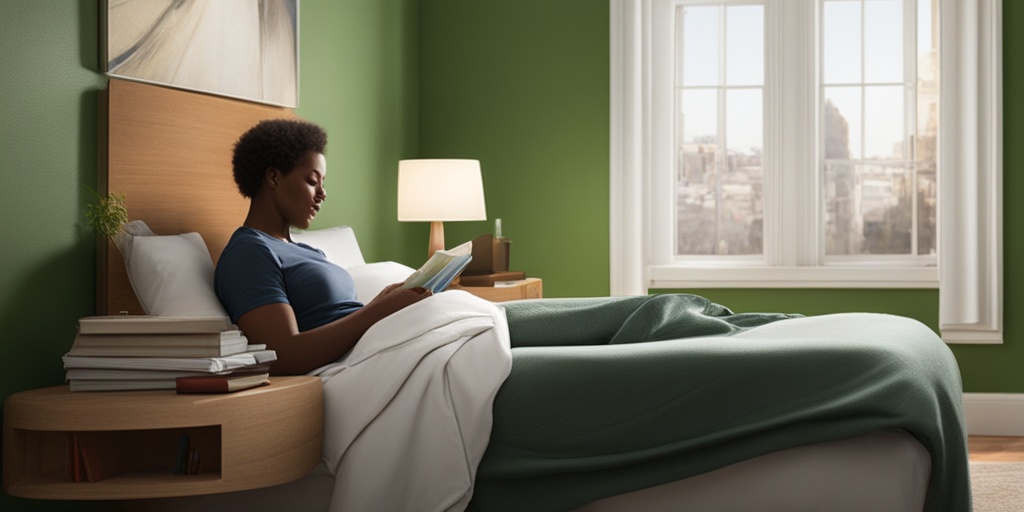
Frequently Asked Questions about Sleep Apnea
What is Sleep Apnea?
What are the common symptoms of Sleep Apnea?
How is Sleep Apnea diagnosed?
What are the treatment options for Sleep Apnea?
Can Sleep Apnea affect my sex drive?
Is there a link between Sleep Apnea and other health conditions?
What should I do if I suspect I have Sleep Apnea?
Can technology help manage Sleep Apnea?
Are there any surgical options for Sleep Apnea?
How can I improve my sleep hygiene to help with Sleep Apnea?
Where can I find support for Sleep Apnea?

